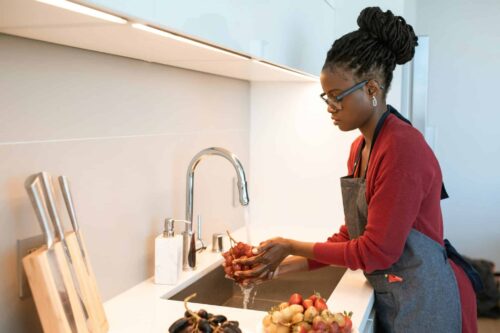Care, Community, and Currency: The Invisible Work Powering Nigerian Families
On October 29, the world marks the International Day of Care and Support. It is a reminder that care work is the quiet engine powering families, economies, and communities, including the care economy in Nigeria. The United Nations General Assembly established this day in 2023, affirming care as a universal human right and a foundation for inclusive, sustainable development. UN Women, the International Labour Organization, and the UN Human Rights Office coordinate the observance.

For Nigerian families, this is more than a date on the calendar. It is an opportunity to address and rectify the economic and social imbalance created by the historic undervaluing of care work, which disproportionately falls on women in Nigeria’s care practices.
What the Care Economy Means
The care economy encompasses paid and unpaid work, both direct and indirect, across homes, communities, the private sector, and public services. Care work sustains daily life, builds human capability, and protects the dignity of both caregivers and care recipients. This includes children, older persons, and people with disabilities.
The care economy encompasses paid and unpaid work, both direct and indirect, across homes, communities, the private sector, and public services. Care work sustains daily life, builds human capability, and protects the dignity of both… Share on X
Nigeria’s potential here is massive. The care economy in Nigeria, as highlighted by Arise TV, suggests that investing in it could create up to 17 million jobs and significantly raise women’s employment.
Yet, the Nigeria Time Use Survey reveals a harsh reality. Nigerian women spend about 4.5 to 6 hours each day on unpaid care and domestic work. Men spend about 1.5 to 2 hours. That gap limits women’s full participation in economic and civic life.
When Care Goes Global: The Diaspora Reality
The load of care becomes even heavier when families migrate. At home, extended family and community networks often share care informally. Abroad, those networks shrink. Formal care services are regulated and expensive, and many families face a tough choice regarding the care economy in their new location.
Reports from countries like the UK reveal the hidden price of undervaluing care, with African, Asian, and other migrant workers carrying a disproportionate burden.
This is not just a labour story within the care economy; it is a family story. It shapes who can work, who stays home, and how children experience stability and care.
October 29 Is a Mandate, Not a Memo
The UN General Assembly set out a clear direction. Countries should invest in the care economy and establish robust, gender-responsive, disability-inclusive, and age-sensitive systems, with full respect for human rights. That includes:
- Recognize, reduce, value, and redistribute unpaid care and domestic work for a better care economy in Nigeria.
- Recognize and value paid care work and care workers as essential.
- Adopt measures that address gender, race, ethnicity, age, and migratory status stereotypes. Reduce occupational segregation. Support the move from informal to formal work. Create quality jobs in care.
- Realize women’s right to work and rights at work for those with care responsibilities, including equal pay for work of equal value.
What This Looks Like for Nigerian Families
- At home: Share care tasks. Agree on simple routines. Use visible schedules. Value rest as much as hustle for a balanced care economy concerning Nigerian families.
- At work: Encourage family-friendly policies. Flexible hours. Paid family leave. On-site or subsidized childcare.
- In policy: Invest in childcare, eldercare, disability support, and community health. Professionalize care work with training, fair wages, and protections.
- For the diaspora: Push for ethical recruitment. Ban exploitative fees. Enforce wage standards. Support pathways to regularized, protected work.
The Bottom Line
If care keeps society standing, then investment in care is a nation-building endeavor. As we mark the International Day of Care and Support, the goal is simple. Move from acknowledgment to action. Share care. Support caregivers. Fund services. Celebrate the work that holds Nigerian families together at home and across the diaspora, strengthening the care economy in Nigeria.
Related on LagosMums: